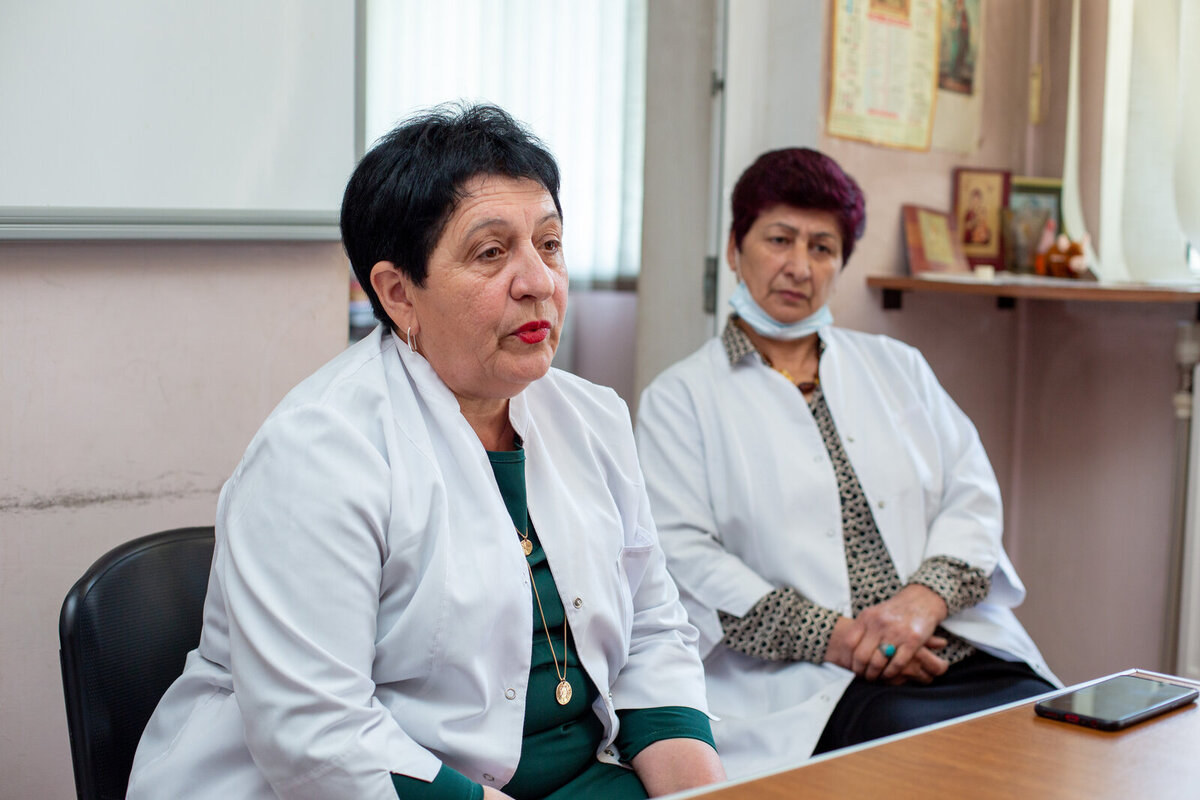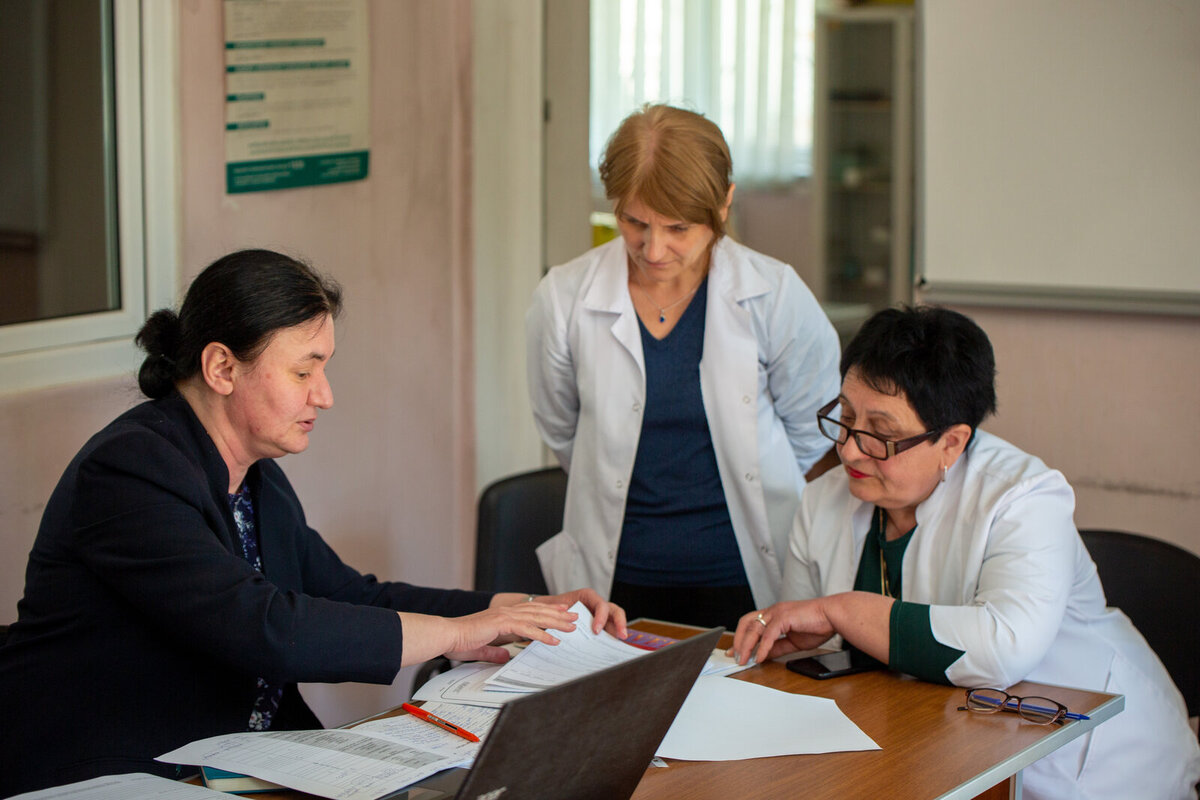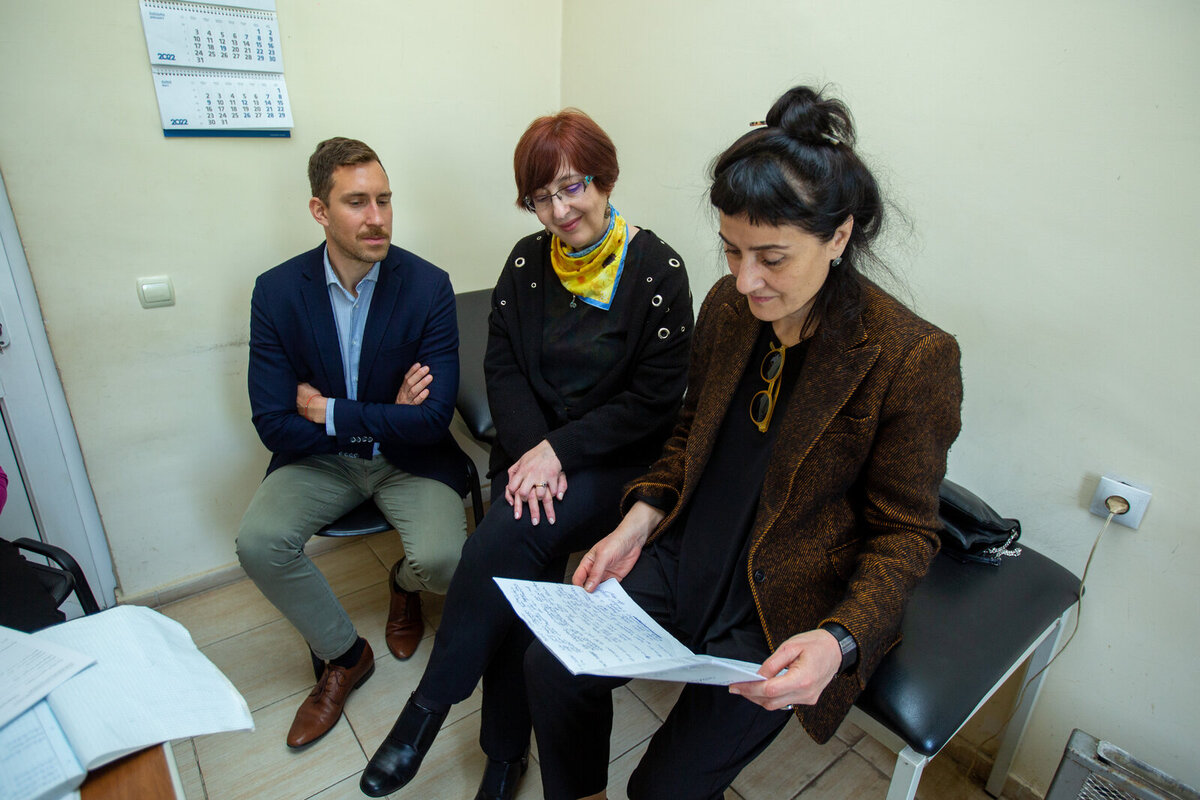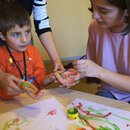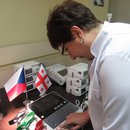Caritas Czech Republic has been supporting primary healthcare in Georgia for five years. After fruitfully cooperating with UNICEF since 2020, we continue our partnership also throughout 2022 thanks to the funding from USAID. The aim of current project is to improve the quality of child health services through practice facilitation and expert consultation provided to the primary healthcare (PHC) practitioners. At this stage, project facilitators have trained hundreds of family doctors across the whole Georgia.
Caritas Czech Republic's Interventions Cover the whole Georgia
Since early 2022, Caritas Czech Republic and UNICEF have been carrying out the project to ensure continuity and quality of maternal and child health services during the COVID-19 pandemic. Within the initiative, all 1284 rural primary healthcare providers across the country were engaged in the project activities. Specifically, each rural clinic has an assigned trained practice facilitator, who works with the family doctors of approximately 30-35 ambulatories to improve their performance in the prevention and effective management of various childhood illnesses at the PHC, including COVID-19.
At the beginning of the project, primary healthcare mentors trained 32 practice facilitators who later carried out online supervision sessions and on-site visits to rural ambulatories across the whole country. Since the start of the field supervision process in February 2022, each facilitator has carried out at least one face-to-face supportive supervision visit to each ambulatory. Each supportive supervision session was dedicated to the specific clinical topic agreed upon between the mentors and facilitators.
Nino Oragvelidze, a doctor of the ambulatory at village Ozurgeti says that supportive supervision visits and sessions conducted through the project were very interactive as the doctors had an opportunity to discuss clinical cases from their practice:
“We were provided with the latest clinical protocols which is a luxury for any doctor. Of course, I have improved my knowledge. The training sessions covered not only COVID-19 but also very important pediatric issues, including the physical development and prenatal care of a child, as well as the latest methods of managing the main medical problems developed in children."
Within the supervision sessions, the project’s facilitators have already covered such important issue as the management of COVID-19 in children within the frame of PHC. Other planned sessions will be dedicated to the child health and development monitoring in different age groups.
Improvement on Secondary Level of Pediatric Healthcare
Another very important part of the project was the update of pediatric COVID-19 management protocols, which has already been done and enforced by the Ministerial order in February 2022.
Subsequently, the face-to-face training course on the use of updated protocols were held in Tbilisi (2 training sessions), Rustavi, Marneuli and Telavi. Overall, 100 doctors of pediatric hospitals took part in a two-day training and were awarded the points of Continuous Medical Education. The course was accredited by the Ministry of Internally Displaced Persons from the Occupied Territories, Labor, Health and Social Affairs (MoILHSA).
Rusudan Chkhubianishvili, Caritas Czech Republic’s project manager says that facilitating primary healthcare practices under the USAID/UNICEF project aims to improve the quality of services provided by all rural PHC clinics, especially in terms of assessing children's health and development:
“In the absence of continuing medical education in Georgia, working with family physicians in such a way, is very important. It allows rural medical staff to obtain the best evidence-based information from experienced practice facilitators on managing child health conditions and preventing developmental delays”.
Chkhubianishvili also notes that the mentioned model can be exemplary in improving the management of the prevailing conditions of adults, which Caritas Czech Republic has experience working in Dusheti and Zugdidi Municipalities.
Our Role in Georgia's Healthcare
Since 2015, Caritas Czech Republic has been supporting the Georgian Government efforts to reform the health care and social sectors. Thus, involvement in the USAID/UNICEF-funded project is a part of Caritas Czech Republic's broader contribution to improvement of the country's health care system.
In July 2021, we presented a Unified Electronic Management Information and a 0-6 Child Health and Development surveillance Information Systems to the Ministry of Health of Georgia. These systems will be used nationwide for the increase of the quality of care provided by the primary health care facilities to their patients. Moreover, CCR experts developed 10 clinical practice protocols and are training the doctors and nurses in 16 rural ambulatories of Dusheti and 28 ambulatories of Zugdidi municipalities in their application. This project is being implemented within the framework of the Czech Development Agency’s support to the reform of primary healthcare system of Georgia.
In addition to the trainings, the PHC experts are providing coaching and regular supportive supervision to the medical staff in the rural ambulatories of Dusheti and Zugdidi with the aim to engage family physicians in regular medical service quality improvement activities. Those are essential to achieving the aim of improving the health of the population, enhancing patient experiences and outcomes and improving PHC provider capacity to manage the most common non-communicable diseases.
In August 2021, Caritas Czech Republic started piloting a Slovak-made innovative solution Scase that will help Georgia’s primary health care system in measuring different vital signs of the patient, which helps not only to monitor patient´s status, but also to detect some of the non-communicable diseases like hypertension or diabetes. After four months, team of Caritas Czech Republic (CCR) and S-case company from Slovakia successfully concluded the project. It was proven that this device is efficient for primary health care facilities located in rural areas as it increases the productivity of healthcare providers, detects new cases of different non-communicable diseases, and as it enables fast and accurate data-sharing and storage in electronic format.
Furthermore, after the COVID-19 outbreak, CCR rapidly tailored its activities to cope with the pandemic, and with this in mind, conducted online trainings for rural doctors in the management of the mild COVID-19 cases, post-covid complications, and vaccination side effects. Moreover, CCR handed over 50 computers to rural ambulatories in pilot regions to enable family doctors to effectively run their clinical practice.


